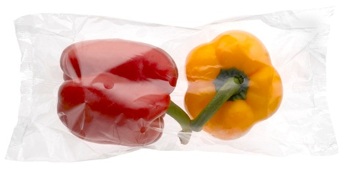Companies in the food packaging chain using polyolefins (polyethylenes and polypropylenes) can now access SABIC’s new food safety and compliance declarations. SABIC is one of the first producers of plastics to the European food industry to have all its food contact declarations updated in line with changes to European Union regulations, three years ahead of the required 2016 deadline. These changes are intended to further increase the safety of packaged foods.
 Companies in the food packaging chain using polyolefins (polyethylenes and polypropylenes) can now access SABIC’s new food safety and compliance declarations. (Photo SABIC, PR069)
Companies in the food packaging chain using polyolefins (polyethylenes and polypropylenes) can now access SABIC’s new food safety and compliance declarations. (Photo SABIC, PR069)
SABIC has been required to retest all its polyolefins packaging materials to make sure they are compliant with the new testing conditions. SABIC provides hundreds of food contact declarations concerning its European polyolefins portfolio as an important service to its customers. The declarations are available on the European pages of www.sabic.com.
The new regulations involve more stringent testing on the ways migration from packaging into food is tested. As these new regulations come into force over the next three years, plastics processors and packaging companies will need to seek further assurances on compliance from their materials suppliers.
EU Plastics Regulation (EU) 10/2011 (PIM) came into force on May 1, 2011, and introduces several changes to regulations embodied in Council Directive 82/711/EC, particularly with reference to testing conditions for migration of individual chemicals and in what can be used in the tests to simulate actual foods. There are changes to the duration of some tests, to the temperatures at which some tests are carried out, and to the simulants for aqueous and alcoholic products inside the packaging. However, the new regulation will not become compulsory until January 1, 2016. In the meantime, it sits along existing food contact legislation.
For PE and PP, SABIC already has assessed all substances regulated with a Specific Migration Limit (SML) under the new conditions (10 days at 60ºC). Its tests showed that none of its PE or PP materials will be subject to additional restrictions for use in food contact applications.
“This is a clear demonstration of the company’s commitment to the packaging market, which accounts for close to a third of all its polymer sales in Europe. SABIC carries out regular compliance tests,” said Mark Vester, Business Director for LL/LDPE at SABIC. “By doing this, we are meeting our obligations to our customers under Responsible Care,” said Vester.
In order to achieve this leading position in service to its customers in food packaging, SABIC has called upon its dedicated Product Stewardship team. Members of this global team of 29 specialists combine expertise in regulatory affairs, product safety and toxicology. The team has at its disposal analytical testing facilities for all kinds of compliance testing.
“SABIC considers the provision of product safety and compliance information as an important customer service,” said Jos Hennen, Senior Global Product Steward food contact and healthcare for polyolefins at SABIC. “We support customers to ensure that our plastics are used in a safe way all along the value chain,” Hennen said.
Food contact legislation in Europe is based on the principle that all substances are forbidden unless they are explicitly allowed. As far as migration from the package to the contents is concerned, there are strict limits on specific migration (SML, relating to individual chemicals) and overall migration (OML, the sum of all specific migrations).
While there is no formal obligation for them to execute migration tests, all manufacturers of plastics raw materials have to provide a Document of Conformity (DoC) to their direct customer, providing confirmation that the material meets the relevant legal requirements. Additionally, they have to disclose the identity of monomers and additives, regulated with an SML and/or QM restriction, as well as the identity of “dual-use” additives, and they have to provide information on restrictions of use if relevant.
For any questions regarding product safety information please contact SABIC via the following link http://plastics.sabic.eu/contact/_en/contact.pl
In January 2013, SABIC held a customer e-seminar on the new testing requirements for food packaging under the EU food contact regulation. To view a copy of the presentation please go to the following link:
http://www.sabic-europe.com/news-media-relations/e-seminars/past/_en/index.htm